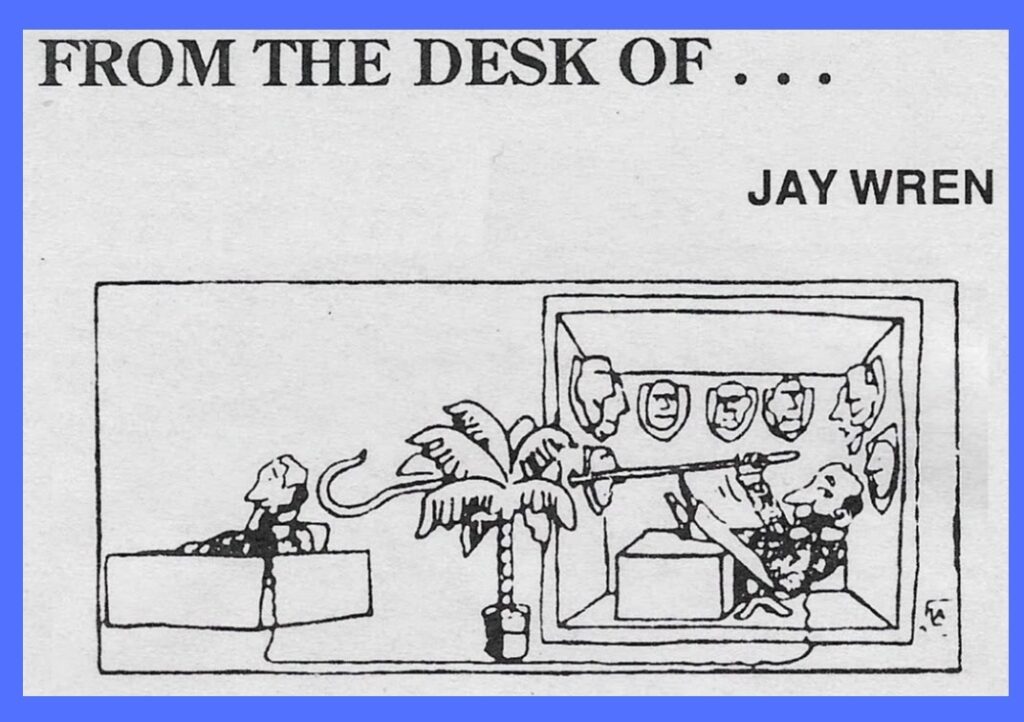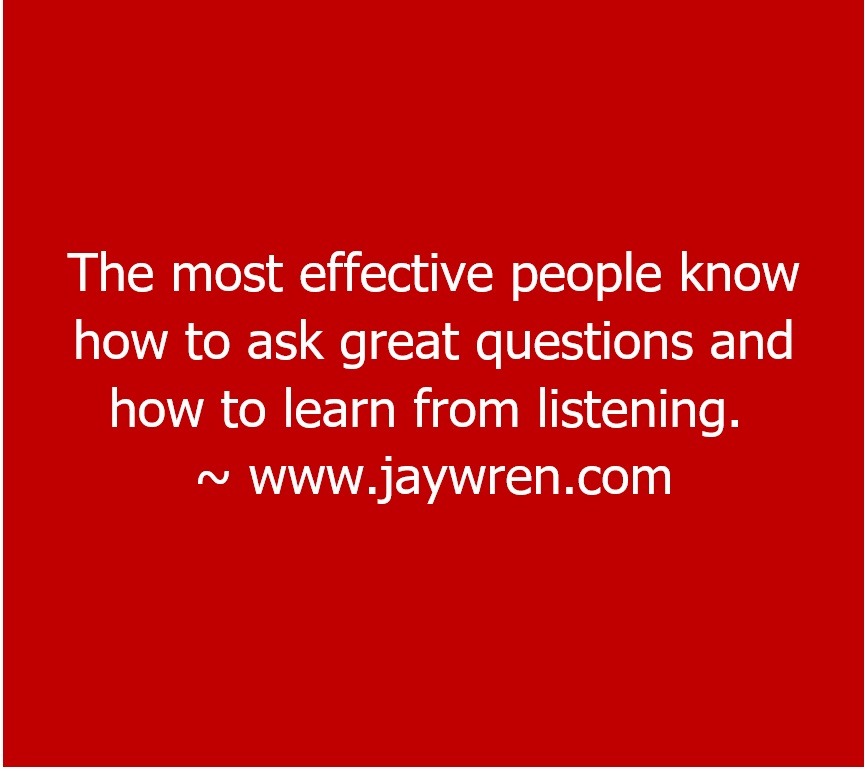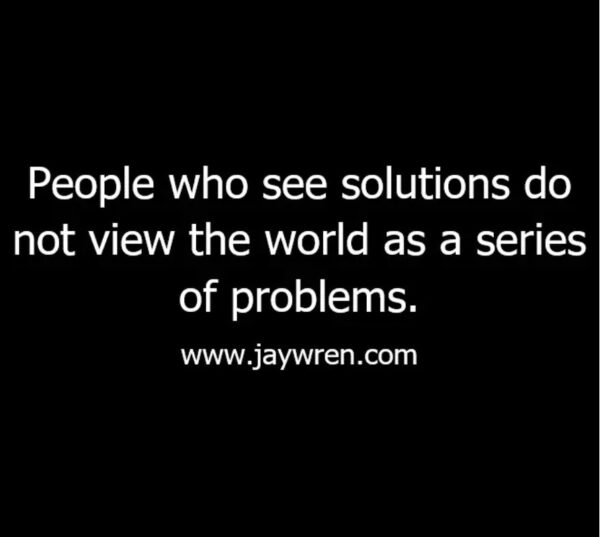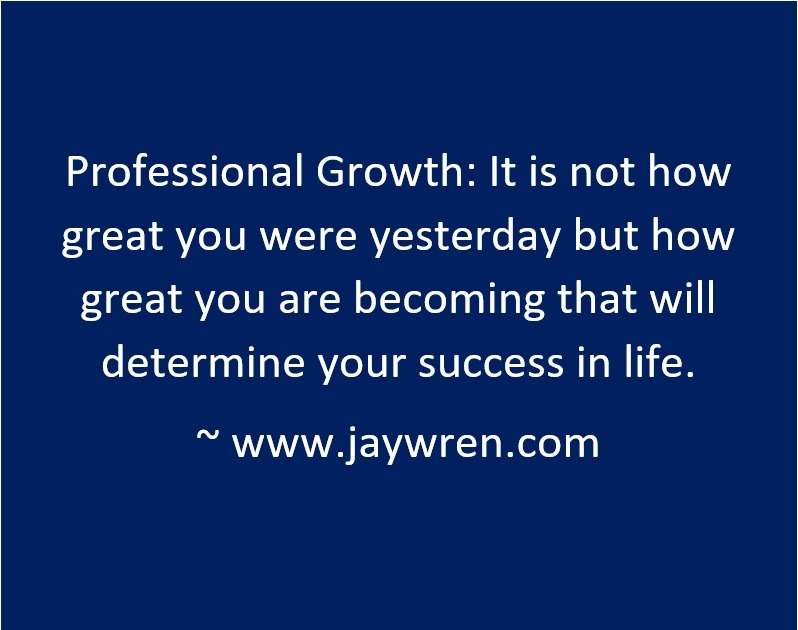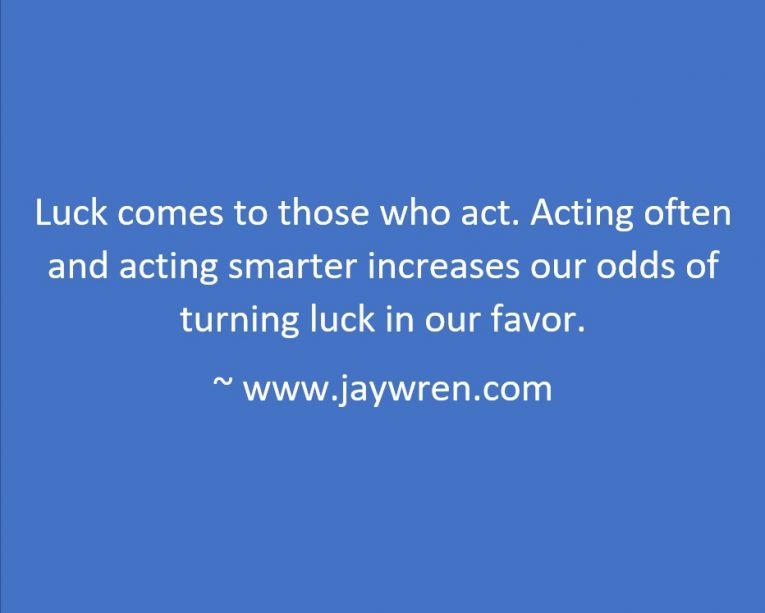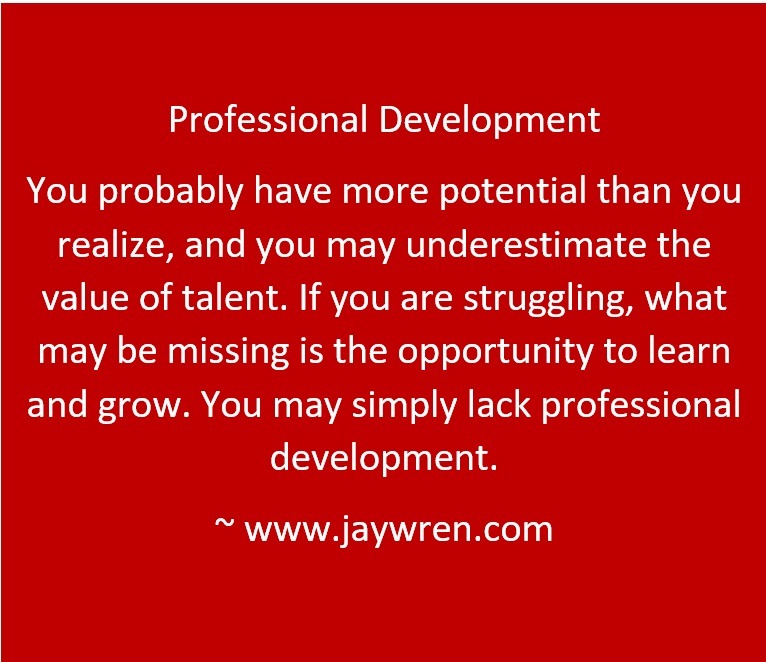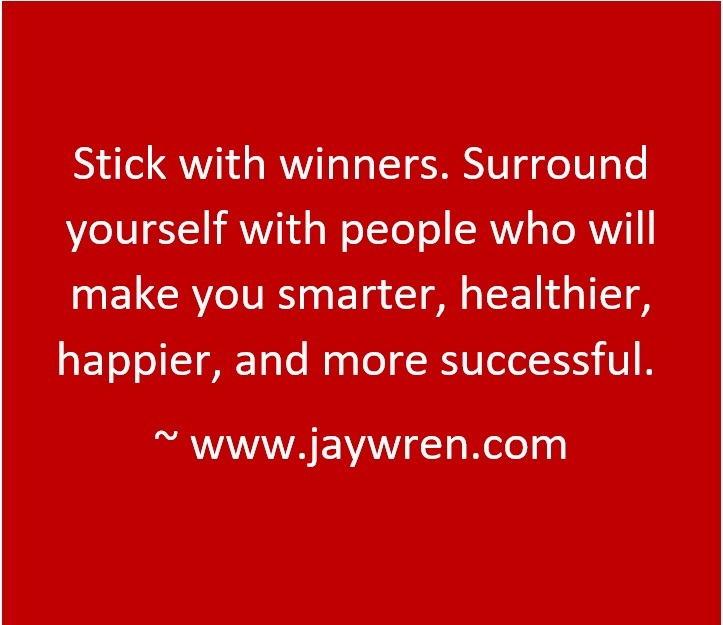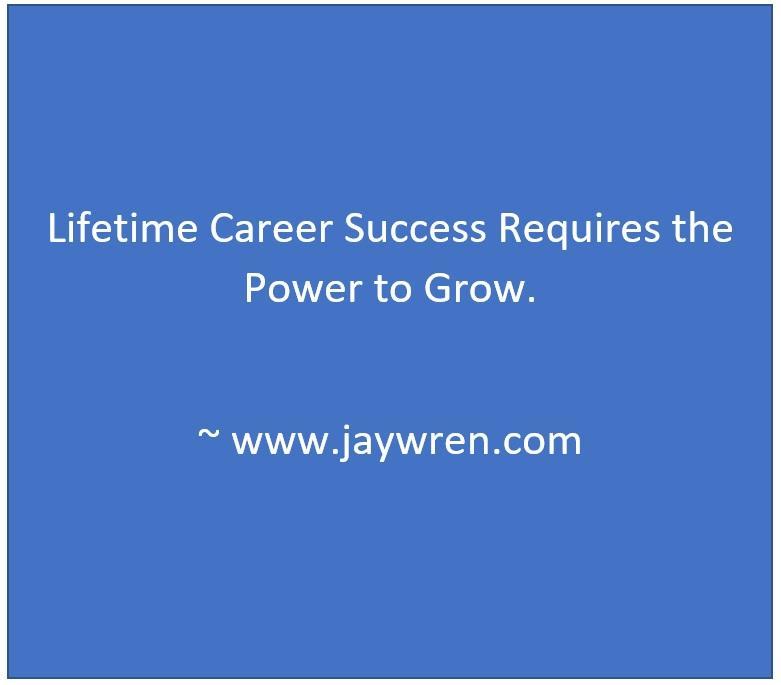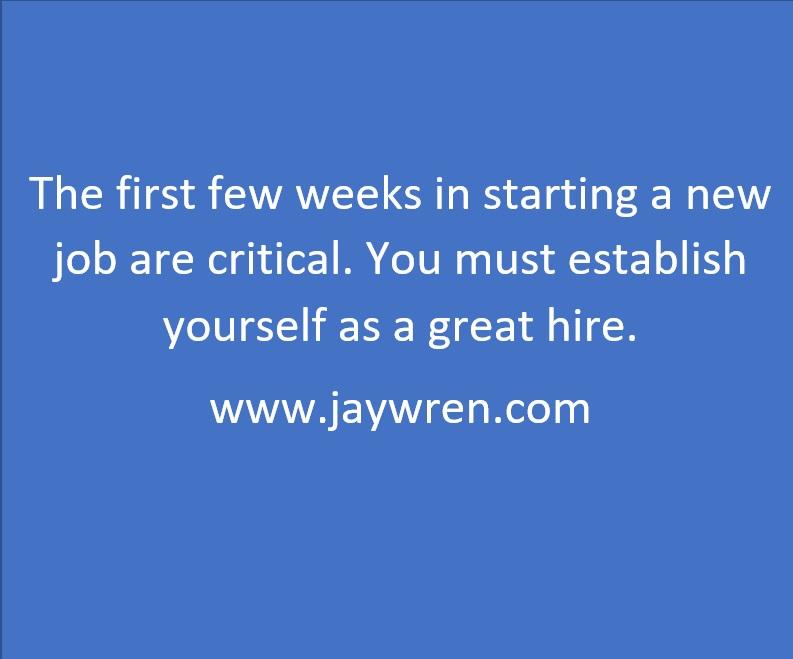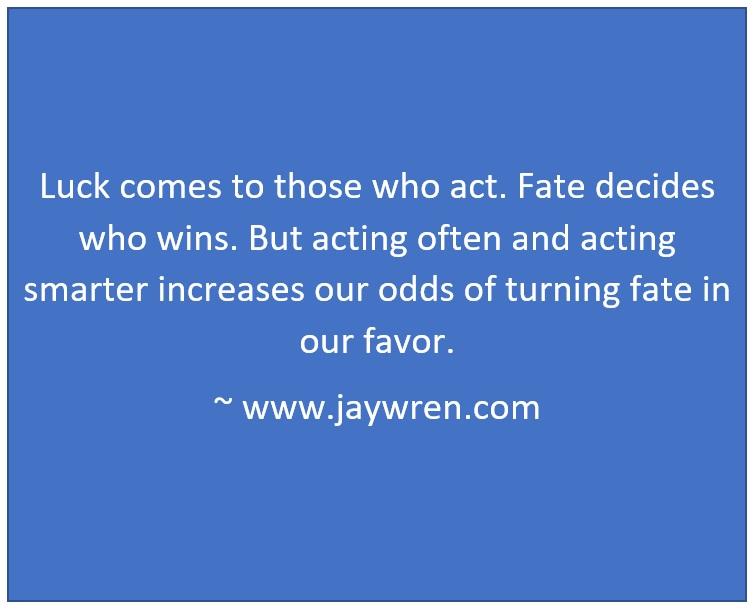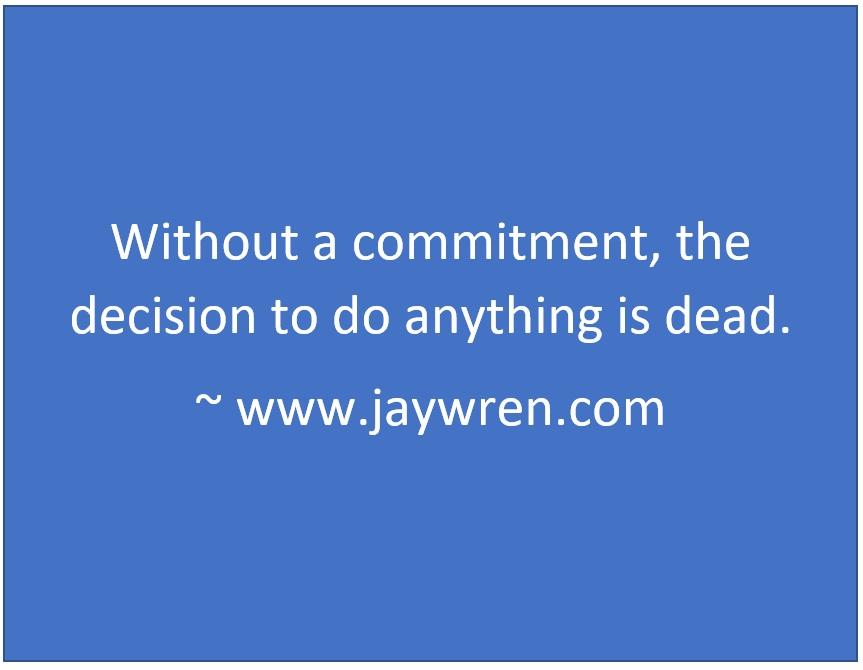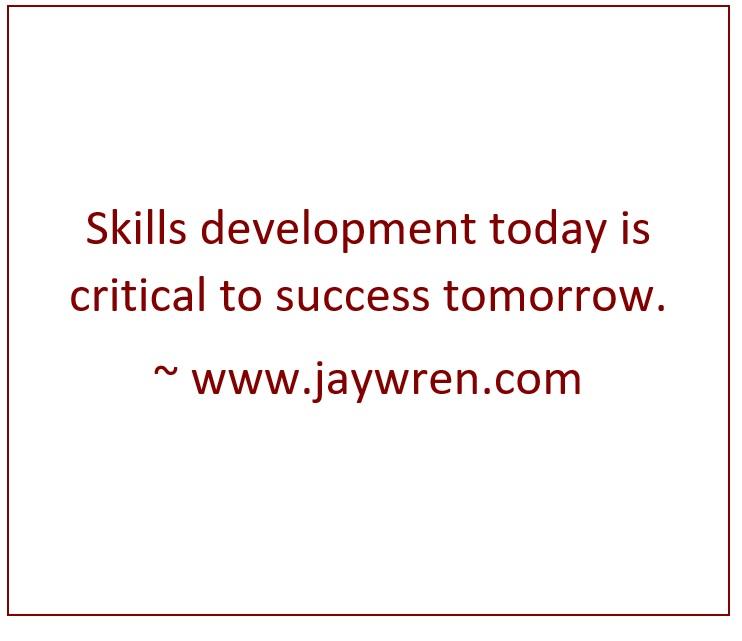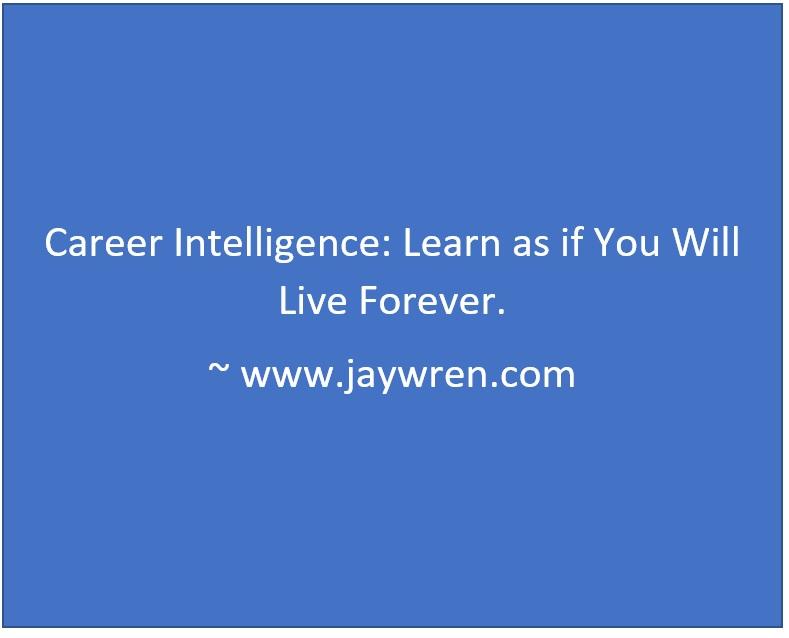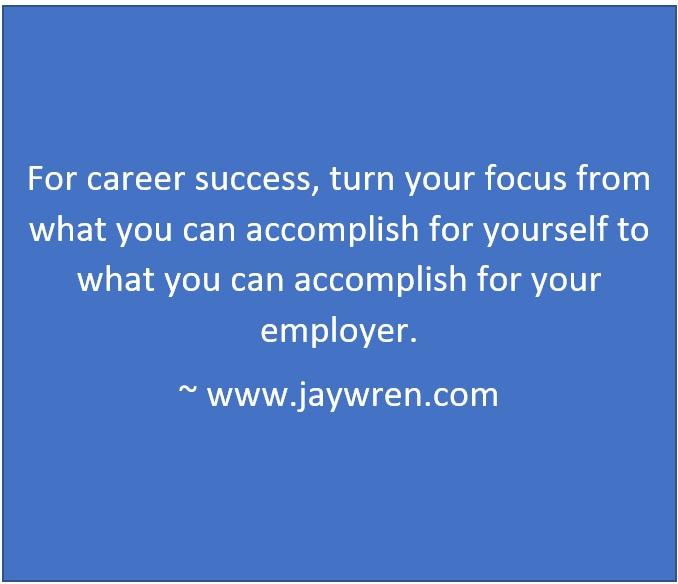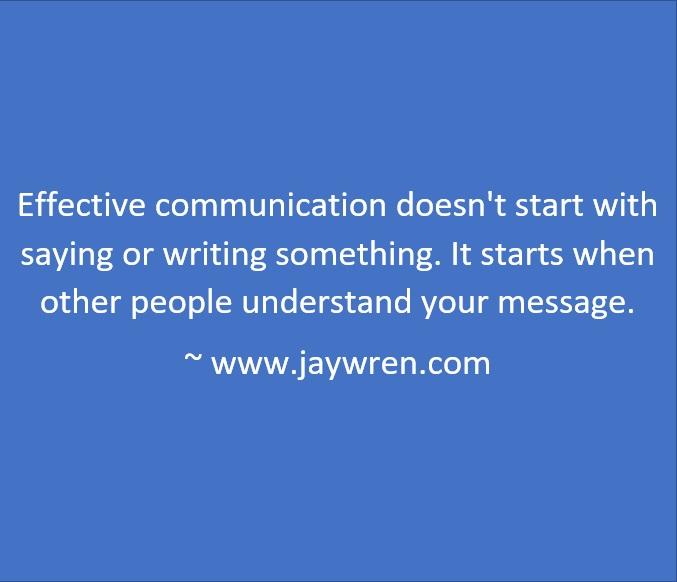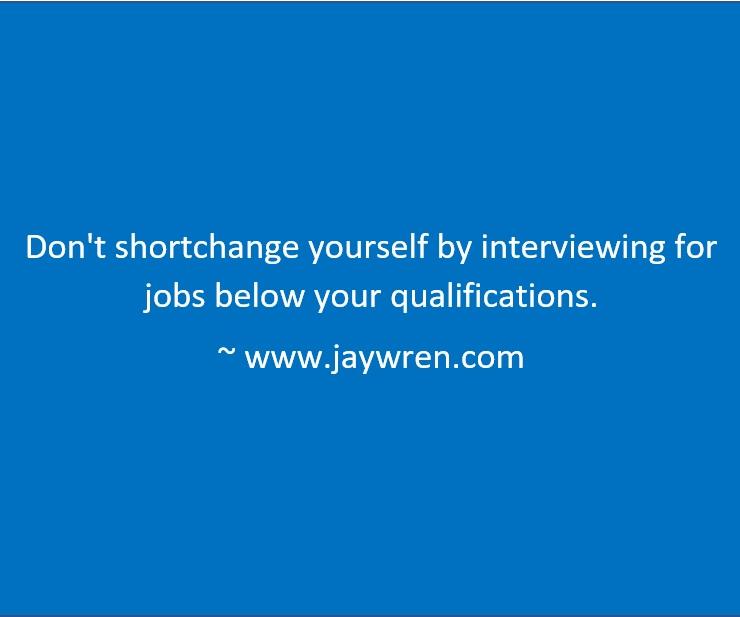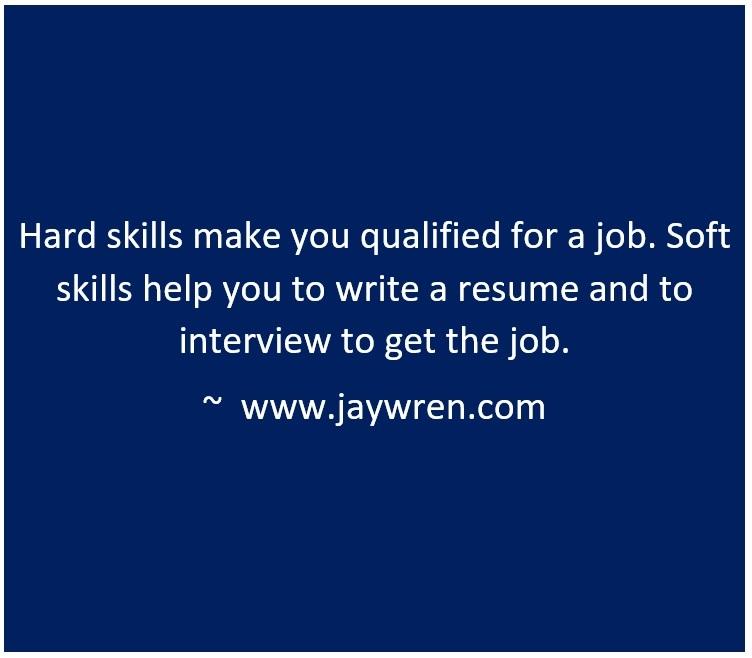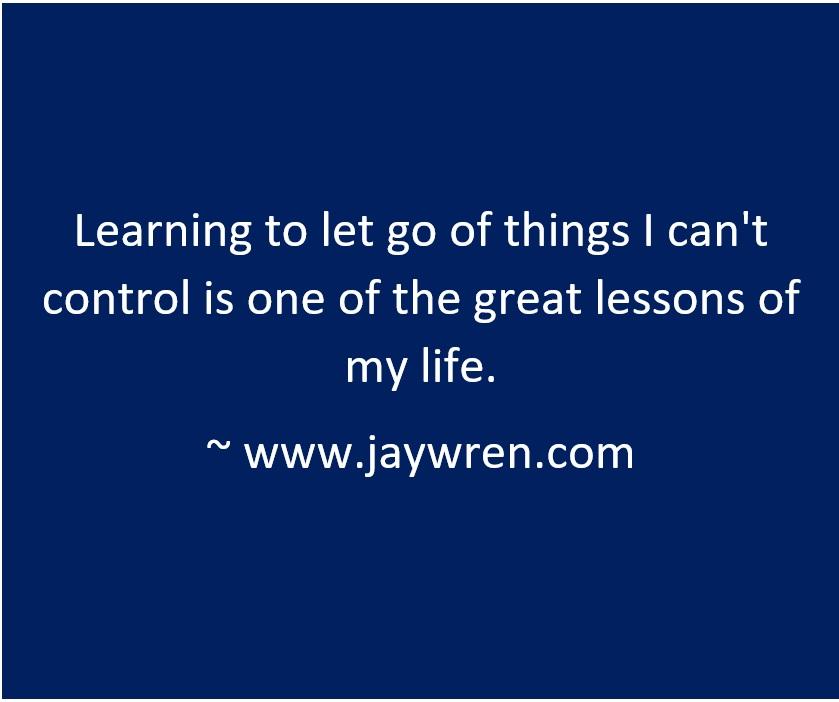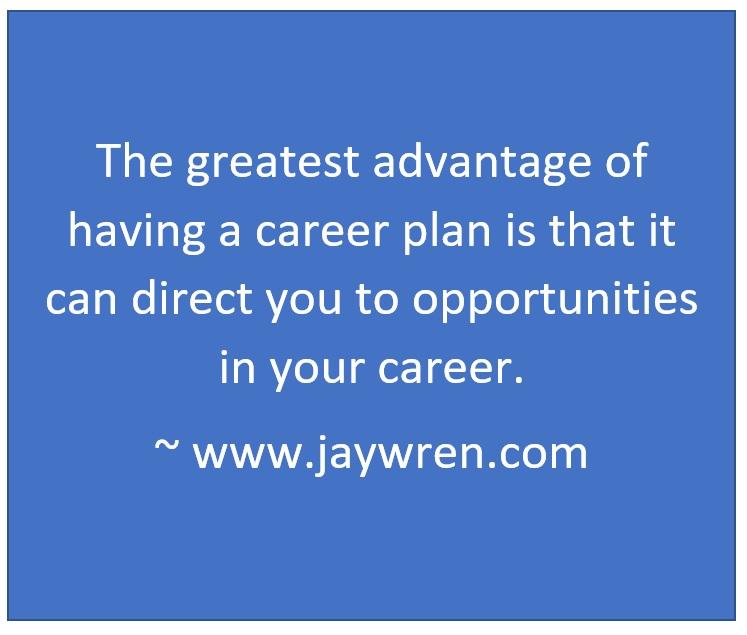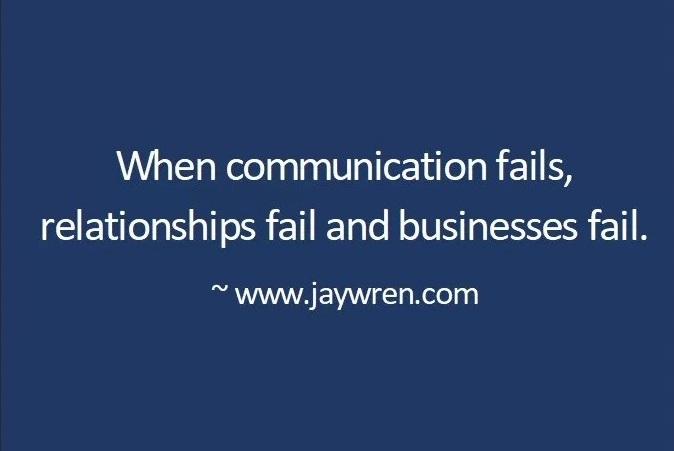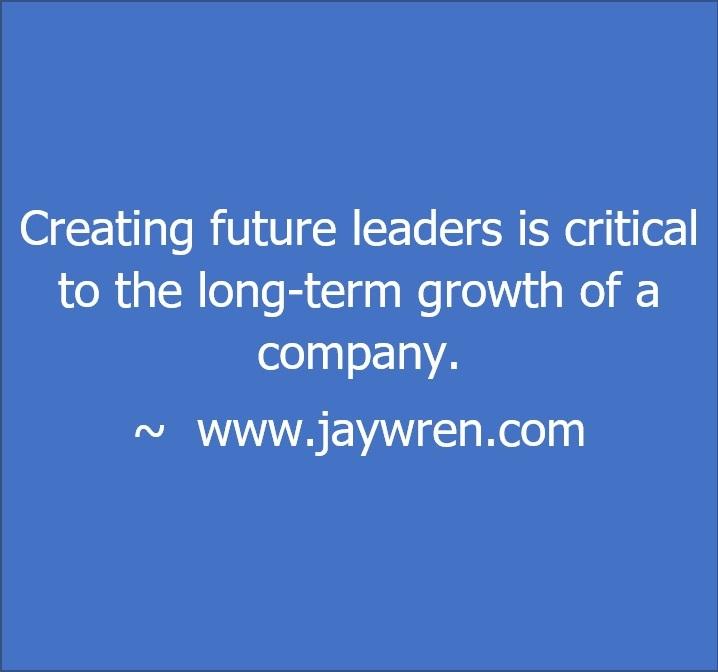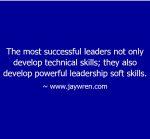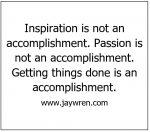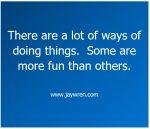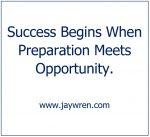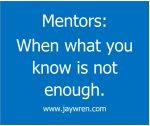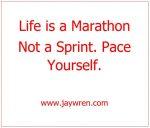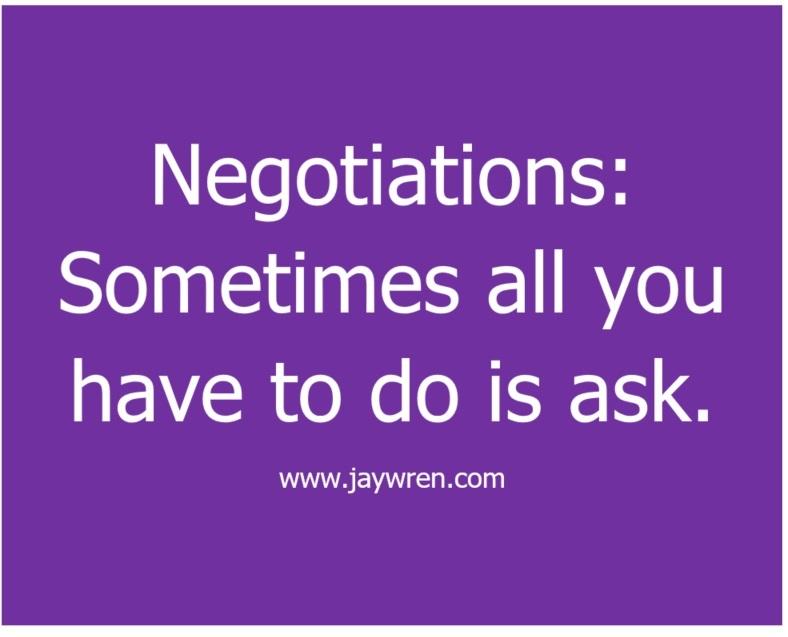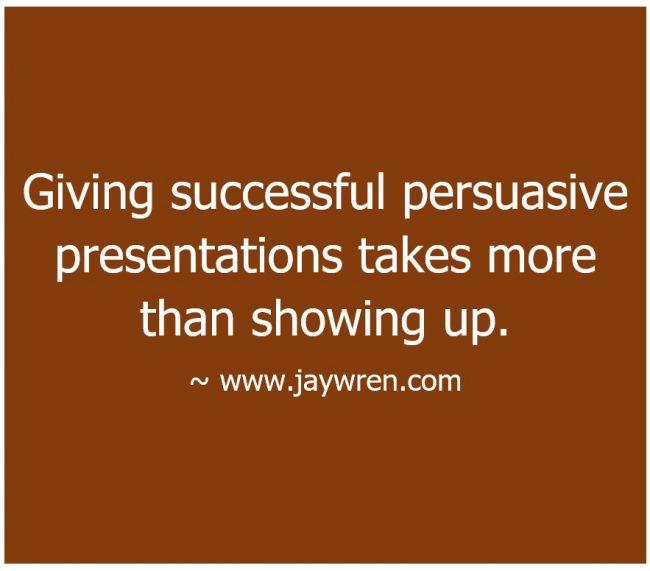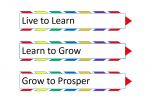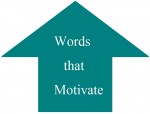Companies rise, fall, and pivot, often in response to changing market demands, technological advancements, or simply a flash of entrepreneurial inspiration. What’s truly fascinating is discovering the unrelated origins of some of today’s most recognizable brands. You might be surprised to learn that the tech giant in your pocket or the car in your driveway…… Continue reading Surprising Origins of Today’s Iconic Companies
Category: Adapt, Innovate, Win
Adapt, Innovate, and Win: Welcome to the cornerstone of jaywren.com, where we believe that growth is a continuous journey fueled by adaptation and leads to success, both personally and professionally. This category unites the core principles of thriving in a dynamic world with the practical steps for individual development. Here, you’ll find insights and actionable strategies to accomplish these things:
- Cultivate an Adaptive Mindset
- Learn to embrace change, navigate uncertainty, and develop the resilience needed to thrive in evolving circumstances.
- Fuel Personal and Professional Growth.
- Explore techniques for self-improvement, skill development, building confidence, and achieving your full potential in all areas of your life.
- Embrace Innovation and Creativity.
- Discover how to think outside the box, generate new ideas, and implement innovative solutions to overcome challenges and seize opportunities.
- Define and Achieve Success
- Understand what success means to you and gain practical guidance on setting meaningful goals and developing effective strategies to reach them.
- Develop Essential Skills for a Changing Landscape
- From communication and leadership to critical thinking and problem-solving, equip yourself with the skills needed to excel in today’s world.
Summary
Whether you’re navigating a career transition, seeking personal fulfillment, or aiming for greater achievements, this category provides the framework and inspiration to adapt, innovate, and win on your unique path to growth and success. Join us as we explore the continuous journey of becoming the best version of ourselves in an ever-evolving world.
Content Marketing: 6 Steps for Building a Large Audience
Six Powerful Strategies to Build a Large and Engaged Audience Expanding your reach and cultivating a loyal audience takes more than just posting content—it requires strategy, consistency, and engagement. Whether you’re a content creator, entrepreneur, or brand, these six essential tips will help you connect with more people and keep them coming back for more.…… Continue reading Content Marketing: 6 Steps for Building a Large Audience
Should I Rebrand my Business?
When I first opened my recruiting company, occasionally someone would ask me if I minded being called a “headhunter?” I saw in that question an opportunity to embrace the idea of being a headhunter. I incorporated the name into my introductions. I had the attached memo pad printed. When I sent people a handwritten note,…… Continue reading Should I Rebrand my Business?
Gemini and JayWren.com: A Story of AI-Powered Transformation
Introduction Please let me start with original content that I wrote for background on how I am using Gemini AI. Since I first started creating content and posting it on my website, I have worked alone. I didn’t know anyone I could discuss anything about building a website or what type of content would be…… Continue reading Gemini and JayWren.com: A Story of AI-Powered Transformation
The Skills Economy: Your Future is Forged in Learning
We live in a world of unprecedented change. Technology is evolving at warp speed, industries are being disrupted, and the very nature of work is transforming before our eyes. In this dynamic landscape, traditional credentials and static job descriptions are becoming less relevant. A new paradigm is emerging: the Skills Economy. In the Skills Economy,…… Continue reading The Skills Economy: Your Future is Forged in Learning
Listening and the Persuasive Power of Asking Questions
The most effective people know how to ask great questions and how to learn from listening. ~ www.jaywren.com Listening: What is the role of asking questions and listening in creating cooperation? Here are examples of how great questions lead you to getting what you want when you understand what other people need. In the Workplace,…… Continue reading Listening and the Persuasive Power of Asking Questions
Cracking the Code: How to Solve Puzzles and Create Solutions
I first ask myself, what is the fundamental puzzle I am trying to solve? Then I can crack the code and solve the puzzle. Not always, but at times, for me, life is a stream of puzzles waiting to be solved. Just for this article, I am going to use the word “puzzles” instead of…… Continue reading Cracking the Code: How to Solve Puzzles and Create Solutions
Adapt, Innovate, Win: The Fundamentals of Success Under Any Circumstances
Introduction Circumstances change, industries evolve, and what worked yesterday might not work today. The ability to adapt, innovate, and win in the face of these shifts is crucial. There are core fundamentals that enable individuals and organizations to thrive regardless of the circumstances. Embracing Change Change is the only constant. Resistance to change often leads…… Continue reading Adapt, Innovate, Win: The Fundamentals of Success Under Any Circumstances
New to My Website? Welcome!
Welcome to Jaywren.com! Hey there! If you’re visiting jaywren.com for the first time, I want to extend a warm welcome. I’m thrilled you’ve found your way here, and I’m excited to embark on this journey of growth and discovery with you. Think of jaywren.com as your go-to resource for creating a life that truly resonates…… Continue reading New to My Website? Welcome!
Solutions: How Successful People See the World
Solutions: Viewing the world as a series of problems is discouraging, even scary. How can we change our outlook for greater success? People who see solutions do not view the world as a series of problems. ~ www.jaywren.com My Story When I was a Navy bridge officer on a carrier, I had a commanding officer who…… Continue reading Solutions: How Successful People See the World
If You Can Keep Your Head When All About You Are Losing Theirs
Ultimately, Kipling suggests that embodying these traits leads not just to success but to the fulfillment of one’s potential as a human being. This poem resonates across generations because of its universal lessons on character and strength. “If you can keep your head when all about you Are losing theirs and blaming it on…… Continue reading If You Can Keep Your Head When All About You Are Losing Theirs
Courage to Continue
“Success is not final, failure is not fatal: it is the courage to continue that counts.” Winston Churchill Success is not final. Even repeating our actions does not guarantee success. As our circumstances change, the actions we need for success change. For nearly thirty years, I built a recruiting business based on using a telephone,…… Continue reading Courage to Continue
Career Agility: Thriving in a Changing World
In today’s rapidly evolving job market, the concept of a linear career path is becoming increasingly obsolete. The rise of automation, globalization, and the gig economy has created a landscape where adaptability and resilience are paramount. This is where career agility comes into play. What is Career Agility? Career agility is the ability to adapt…… Continue reading Career Agility: Thriving in a Changing World
4 Steps to Success Through Career Agility
Career agility is critical for long term success. ~ Jay Wren The best example of the reason why is the closers of retails stores across America. It’s tough to keep a completely up-to-the-minute list of retail closures, as the landscape is constantly shifting. However, here are some notable retail chains that have closed entirely or…… Continue reading 4 Steps to Success Through Career Agility
Save Time and Become More Productive: Just Say “No”
How Saying No Can Lead to Greater Success It’s easy to feel overwhelmed and constantly pulled in different directions. We say “yes” to every request, every opportunity, every social invitation, leaving little time for ourselves and our own goals. But saying “no” more often could actually be the key to achieving greater success? Here’s how…… Continue reading Save Time and Become More Productive: Just Say “No”
What Steps can I Take Today to Make Things Better?
Horrible things happen to all of us, things beyond our control. But developing winning traits can change the questions we ask when we meet challenges. We stop asking, “Why me?” Instead, we ask, “What steps can I take today to make things better?” ~ www.jaywren.com Photo by Mathias Reding on Unsplash
What Everyone Should Know When Starting a New Job
Before starting any new experience, ask yourself, “What do I need to know?” ~ jaywren Starting a New Job The first few weeks in starting a new job are critical. You must establish yourself as a great hire. Moreover, while people are forming impressions of you as a new hire, you are faced with many…… Continue reading What Everyone Should Know When Starting a New Job
Uniquely Great
Great leaders have things in common. They also have different ways to find their individual greatness. Here are eight ways you can find your own individual greatness. Find the beat of your own drum and march to it. It is so easy for me to get distracted and off course when I look at what…… Continue reading Uniquely Great
Life is Good
Feeling grateful is a normal, healthy feeling about life. However, gratitude is not always the first feeling we have. But we can create feelings of gratitude by making the effort to think about the good things in our life. Photo by Aaron Burden on Unsplash
Professional Growth
Professional growth: things change so rapidly that you must develop the skills and learn the information that will continue to make you an asset to your customers or clients. Success Stories Learn from success stories. Learn about the changes people are making to become successful. Additionally, learn about the needs that people have for new…… Continue reading Professional Growth
Luck and Action
https://www.jaywren.com/luck-needs-action/
Continuing Professional Development: 5 Elements for Continued Growth
Continuing Professional Development and the 5 Elements of Learning. If you want to become a power performer, you probably have more potential than you realize, and you may underestimate the value of talent. If you are struggling, what may be missing is the opportunity to learn and grow. You are lacking professional development. Advisors Nearly…… Continue reading Continuing Professional Development: 5 Elements for Continued Growth
Stick with Winners For Personal and Professional Success
Stick with winners. Surround yourself with people who will make you smarter, healthier, happier, and more successful. Personal and Professional Life In your personal and professional life, surround yourself with winners. Learning how these people have become successful and remain successful can help you learn how to build success in your own personal and professional…… Continue reading Stick with Winners For Personal and Professional Success
Lifetime Career Success Requires the Power to Grow
Lifetime Career Success: Building a successful career is a continual process of expanding your skills and your network. Don’t fear change. Embrace it. Move beyond your comfort zone. Self-doubt is a sign that I am growing. With growth, I gain greater confidence and marketability. The Texas Ice Houses At one time, ice houses sold one…… Continue reading Lifetime Career Success Requires the Power to Grow
7 Steps to Starting a New Job
Starting a new job: The first few weeks in starting a new job are critical. You must establish yourself as a great hire. Moreover, while people are forming impressions of you as a new hire, you are faced with many challenges. To deal with the challenges, the first step is learning what to expect. The…… Continue reading 7 Steps to Starting a New Job
Thinking: Learning how to Manage the Pain Between our Ears
Thinking: Happiness is easy when everything is going our way. However, we can suffer, even when have everything we want. By managing our thinking, we can find joy from learning how to think about our world. Thinking: Learning how to Manage the Pain Between our Ears Being happy is a normal. Staying unhappy is not.…… Continue reading Thinking: Learning how to Manage the Pain Between our Ears
Fate and Luck: Playing Comes Before Winning
Fate and Luck: Luck comes to those who act. Fate decides who wins. But acting often and acting smarter increases our odds of turning fate in our favor. In life or in cards, we can’t win without playing. ~ www.jaywren.com Fate and Luck I have had good luck and bad luck. But without work, I…… Continue reading Fate and Luck: Playing Comes Before Winning
Career Change Commitment: Steps to Stay Engaged
Career Change Commitment: Hunting for jobs take a lot of work. It is easy to let up and let opportunities slip away. Finding a job is a business. Even when business is slow, you can act to increase your success of finding the job you deserve. Here are some things you can do during a…… Continue reading Career Change Commitment: Steps to Stay Engaged
Finding New Industries for Your Job Skills
Finding New Industries: If you find that you have skills that are no longer needed in your current industry, it is natural for you to feel discouraged. Skills Requirements Continue to Change The ever-changing employment landscape often leaves people with industry-based skills and no employment market for those skills. If you are one of those…… Continue reading Finding New Industries for Your Job Skills
Rebel: The Power of Being Different
Rebel: The world is full of successful people who conform to the norm. However, a rebel can blow past the norm and change the world. I have never known a rebel who was boring. ~ www.jaywren.com Companies have guidelines and rules. But what do you do when the guidelines block you from achieving your goals?…… Continue reading Rebel: The Power of Being Different
Wise Choices: Little Adjustments Can Change the Day
Wise choices: Success comes from making wise choices about how to feel and respond to the things that happen to us. When I am having a bad day, I can strain to push myself through the day. Ruminating, sulking, and whining are great ways to stay stuck in a bad day. On the other hand, I…… Continue reading Wise Choices: Little Adjustments Can Change the Day
Meeting Agendas: Gaining Control Through Preparation
Meeting Agendas can empower you to set and control the purpose of a meeting as well as the agreements reached during the meeting. Are you tired of meetings that accomplish nothing? These lessons from sales training might help. Case Study During lunch, a field sales manager of a major consumer goods company told me about…… Continue reading Meeting Agendas: Gaining Control Through Preparation
Career Intelligence: Learn as if You Will Live Forever
Career Intelligence is a prerequisite for career agility. “An agile career is the result of an awareness and willingness to learn new skills that increase your value to your current and future employers. ~www.jaywren.com Building a lifetime career is a continual process of expanding your skills and your network. Every single day, innovation changes something…… Continue reading Career Intelligence: Learn as if You Will Live Forever
Accomplishments: Knowing the Purpose of Your Goals
Accomplishments: Why is it that some companies and some people fail to achieve their goals? How can they define their goals better with stating what they hope to accomplish? The Benefits of Knowing What You Want to Accomplish Goals are the things we hope to do. Before we set goals, we should ask ourselves what…… Continue reading Accomplishments: Knowing the Purpose of Your Goals
Effective Communications: 7 Steps to Being Understood
Effective Communications are part of the job for professionals in all types of fields and responsibilities. Here are 7 ideas for communication success. Headlines Even when speaking, you will help people understanding you with a headline. The headline states the topic. “Bill, let’s talk about the plan for this weekend” is a simple sentence that…… Continue reading Effective Communications: 7 Steps to Being Understood
Overqualified? How to Get Interviews that Match Your Skills
Overqualified? Are you frustrated, because hiring companies will not see you for jobs you can do easily? You are not alone. Here are the reasons why you are not getting interviews and what you can do about it. The Risks to Employers of Hiring Overqualified People Speaking as a recruiter, I can tell you that…… Continue reading Overqualified? How to Get Interviews that Match Your Skills
Skills Development: Hard Skills and Soft Skills
Skills development: Skills come in two categories: hard skills and soft skills. In writing you resume and interviewing, you will be more effective when you understand the different types of skills you are listing. Hard Skills You can learn hard skills, and you can learn soft skills. Hard skills are your ability to perform tasks. These…… Continue reading Skills Development: Hard Skills and Soft Skills
Letting Go: Steps to a More Peaceful Yet More Powerful Mind
Letting Go: When I get caught up in trying to control everything in my life, I am setting myself up to suffer anxiety and anger. Becoming aware that I am holding onto painful thoughts and feelings is the first step to a higher level of thought. Learning to let go of things I can’t control…… Continue reading Letting Go: Steps to a More Peaceful Yet More Powerful Mind
Career Plan: Tailored and Flexible for Your Success
Picking A Career In picking a career, start with an understanding of what you want to do and what you need to do to have that type of career. First, answer these questions. What Do You Want to Do? How Important is Income? How Well Do You Tolerate Risk? Where Do You Want to Live? What…… Continue reading Career Plan: Tailored and Flexible for Your Success
Communication: How Effective People Speak and Write
Communication: Effective speaking and writing are part of the job for professionals in all types of fields and responsibilities. Here are some ideas to make your business and personal communications more powerful. Headlines Even when speaking, you will help people understanding you with a headline. The headline states the topic. “Bill, let’s talk about the plan…… Continue reading Communication: How Effective People Speak and Write
Creating Future Leaders: 4 Steps to Leadership Development
Creating Future Leaders: How can companies hire and train future leaders? Here are four steps companies can take to strengthen their leadership for the long term. The Four Steps to Creating Future Leaders Creating future leaders is critical to the long-term growth of a company. ~ www.jaywren.com Hire for leadership Establish Authority & Responsibility Teach for…… Continue reading Creating Future Leaders: 4 Steps to Leadership Development
Career Intelligence: Aligning Your Career with Your Brain
Career Intelligence: Aligning your career with the way your brain works will increase your ability to excel in the workplace. How can you shape your career around the way that you are smart? What Kind of Solutions Come Easy for You? Creating a career that matches the way you think can empower you for success. To…… Continue reading Career Intelligence: Aligning Your Career with Your Brain
Productivity: 5 Things Highly Successful People Do Differently
Being busy means nothing. Success comes from getting things done. ~ www.jaywren.com Productivity: Some people have a successful career based on their ability to get things done. Other people accomplish less and their careers fail. Why? 1. Have a Simple Productivity Process Bricklayers start the day with the same tools and supplies. From there they…… Continue reading Productivity: 5 Things Highly Successful People Do Differently
15 Leadership Soft Skills that Create Greatness
Leadership soft skills: What are the leadership soft skills that create great employees and successful companies. How can you develop these skills? The most successful leaders not only develop technical skills; they also develop powerful leadership soft skills. ~ www.jaywren.com 15 Leadership Soft Skills that Create Greatness “That some achieve great success is proof to…… Continue reading 15 Leadership Soft Skills that Create Greatness
No Job Plan: Why Long-Term Career Plans Fail
No Job Plan: To increase your income, do you plan to change jobs every three years? On the other hand, do you plan a career at the same company? No Job Plan: Why Long-Term Career Plans Fail Are you basing your career on changing jobs every three years to increase your income? On the other…… Continue reading No Job Plan: Why Long-Term Career Plans Fail
Confidence: How to Feel Comfortable in a Crowd
Confidence: From time to time, everyone feels insecure. Our feelings turn inward. Here are five tips for turning insecurity into poise and confidence. Confidence: Only You Can Deny Yourself Permission to Feel Comfortable in a Crowd. ~ www.jaywren.com Confidence: How to Feel Comfortable in a Crowd I have a fair amount of confidence in a crowd.…… Continue reading Confidence: How to Feel Comfortable in a Crowd
Interview Preparation: Three Steps That Will Land You the Job
Interview Preparation: Are you frustrated with rejection when you have the qualifications for the job? These three steps will help. Fifty percent of the effort for the best interviews is in the preparation. ~ www.jaywren.com There are three distinct steps in preparing for an interview. #1 Interview Preparation: Everything About You In the first step,…… Continue reading Interview Preparation: Three Steps That Will Land You the Job
Get Things Done: How to Defeat Procrastination
Get Things Done: How is it that some people are so productive when other people can’t get to the job? What can you do to become successfully productive? Inspiration is not an accomplishment. Passion is not an accomplishment. Getting things done is an accomplishment. ~ www.jaywren.com Get Things Done: How to Defeat Procrastination: Highly successful…… Continue reading Get Things Done: How to Defeat Procrastination
Fun: In What Way Can Fun Increase Productivity?
un: What are the things that you can do to reduce stress in the workplace? In what ways can we enjoy our work and can increase our productivity? Fun: In What Way Can Fun Increase Productivity? I enjoy my work. The requirements of the job are simple yet fast paced. The tools are a lot…… Continue reading Fun: In What Way Can Fun Increase Productivity?
Cold Calls: How Do You Take the Chill Out of Cold Calls?
Cold calls: do you fear calling people you don’t know? How do successful people open doors to opportunity through a simple phone call? Cold Calls: How Do You Take the Chill Out of Cold Calls? Cold calls: do you fear calling people you don’t know? How do successful people open doors to opportunity through a…… Continue reading Cold Calls: How Do You Take the Chill Out of Cold Calls?
Business Meetings: Bringing the Right Tools
Business Meetings: job interviews, sales calls, client service meetings, meetings within your own company. What tools can add power to your presence? Business Meetings: Bringing the Right Tools What you bring to a business meeting is as important as the things you say or do in a business meeting. Getting to a business meeting to discover…… Continue reading Business Meetings: Bringing the Right Tools
Mentors: A Source Of Power Or A Waste of Time?
Mentors: What is a mentor? How can a mentor help you? What skills do you need to benefit from mentoring? What type of mentoring will work effectively for you? Mentors: A Source of Power or A Waste of Time? For many people, a mentor is a source of inspiration, wisdom, and solutions. Some people rely…… Continue reading Mentors: A Source Of Power Or A Waste of Time?
Wired For Success: Five Steps to Upping Your Mental Game
Wired For Success: Some people procrastinate, worry, and accomplish very little. However, other people get into action, have peace of mind, and achieve success. What do these people do differently? Wired For Success: Five Steps to Upping Your Mental Game Wired For Success: Some people accomplish very little. On the hand, other people get things…… Continue reading Wired For Success: Five Steps to Upping Your Mental Game
Mental and Emotional Burnout: When Self-Sacrifice Becomes Destructive
Mental and Emotional Burnout: Do you look at your work and say, “I can no longer do this?” How do you recover the energy and excitement to do your job? Mental and Emotional Burnout: When Self-Sacrifice Becomes Destructive The term “burnout” in reference to job performance comes from an article “Staff Burn-Out” by Herbert J. Freudenberger,…… Continue reading Mental and Emotional Burnout: When Self-Sacrifice Becomes Destructive
Inspiration: How Successful People Find Joy at Work
Do you find yourself depressed about your work? Do you have trouble concentrating? Is it difficult for you to finish your work? Were you excited when you landed your current job and now you dread doing your job? During the decades that I worked as a recruiter, I went through easy times, tough times, and…… Continue reading Inspiration: How Successful People Find Joy at Work
Business and Career Growth: Can a Business or Career Become Static and Survive?
Business and Career Growth: Can a Business or Career Become Static and Survive? Building a business or a career is a continual process of expanding your goods, services, skills, and network. The first day that I sat down to start my career as a recruiter, I had no contacts. I had a telephone, an empty…… Continue reading Business and Career Growth: Can a Business or Career Become Static and Survive?
Negotiations: Why do Americans struggle to negotiate?
Negotiations: Why do Americans struggle to negotiate? Negotiation is a skill. You can learn it. A few negotiation skills can help us in all aspects of our lives. In some countries, people regularly negotiate retail prices. Yet in America, many people are frightened of the idea of asking for people to negotiate with them over a…… Continue reading Negotiations: Why do Americans struggle to negotiate?
The Seven Steps of a Persuasive Presentation
When I worked at Procter & Gamble, I took a sales training course that included a presentation model that works for any situation. Procter & Gamble titled the model the 5-Steps to persuasive selling. Xerox had actually developed the original course as the 7-steps to professional selling (PSS). Let us say that tomorrow you have…… Continue reading The Seven Steps of a Persuasive Presentation
Learn as if You Will to Live Forever.
“Live as if you were to die tomorrow. Learn as if you were to live forever.” ~Mahatma Gandhi Learning is simple as staying curious and continuing to ask questions, simple questions like these: Is that true? How do I do that? What is this all about? Knowledge is more available than ever. Here are some…… Continue reading Learn as if You Will to Live Forever.
4 Questions of a Successful Career Plan
4 Questions of a Successful Career Here are four questions to ask yourself in planning your career and in adjusting your career plan over time. What do you want to do? Write down what you want to do on the job. Write down where you want to live. Write down whether you want to work from…… Continue reading 4 Questions of a Successful Career Plan
8 Winning Tips for Telephone Meetings
8 Winning Tips for Telephone Meetings: Telephone meetings have increased in popularity. More people work from home. Face-to-face communication over the Internet is easier. Before the telephone meeting, prepare as though someone is coming to meet you in your office. Have these things on your desk: A statement of the purpose of the meeting Any…… Continue reading 8 Winning Tips for Telephone Meetings
Words that Motivate
Words that motivate employees are words that create inclusiveness and extend recognition for the contribution of other people make. They are also words that create a recognition of boundaries that each person feels about receiving help. I read an article on HBR.org about the power in the word “we” and a second article on HBR.org about the power in…… Continue reading Words that Motivate
How Important is Your College Major?
How important is your college major? Graduating from college did two things for my career. I got a key to let me in the door that said, “Degree required” on the job description. I gained acceptance into business circles and social circles where having a college degree meant credibility. With a liberal arts degree, I…… Continue reading How Important is Your College Major?
How to Bridge Employment Gaps in Your Resume
If you have gaps in your resume, you are not alone. Long recessions and a restructuring of the economy in the United States have created new complications for people who need to find jobs. New types of jobs often require that job seekers develop new skills. In some cases, job seekers must receive certifications, credentials,…… Continue reading How to Bridge Employment Gaps in Your Resume
Job Change: What is Your Greatest Strength?
What’s Your Greatest Strength is a popular interview question. Answering this question gives you an opportunity to shine as the perfect applicant for the job. When you are preparing for your interview, think specifically about how your strengths fit the job. There are different types of job strengths. Each of these strengths has value depending…… Continue reading Job Change: What is Your Greatest Strength?
Are Standing Meetings More Productive?
Are Standing Meetings More Productive? In a study at Washington University, St. Louis, MO., researchers found increases in the performance of people working in groups. Beginning with the knowledge that standing and working is healthy, the researchers, Andrew P. Knight and Markus Baer, created their study to learn how standing affects the performance of groups. They…… Continue reading Are Standing Meetings More Productive?
5 Keys to Business and Career Success
Create a flexible plan and continue to develop new skills for success. The first key to business and career success is a flexible plan built around continued innovation and skills development. The needs and interest of consumers will always change. Successful businesses and people change with the needs and interest of consumers. At one time,…… Continue reading 5 Keys to Business and Career Success
Humility and Team Success
“Humility is not thinking less of yourself, it’s thinking of yourself less.” C. S. Lewis” Research on Humility and Teams In an article “The Best Leaders Are Humble Leaders,” HBR.org, Jeanine Prime and Elizabeth Salib reviewed research they had conducted on leadership. The research involved six countries and twenty-two companies. It showed that employees who believed…… Continue reading Humility and Team Success
Are You in the Wrong Job?
If you feel unappreciated, are you in the wrong job? By unappreciated, I mean that you experience these things. Your turn has come up for promotion, but the promotion goes to your peers or perhaps people who have come into your company and moved past you. Your company brings in management from the outside for…… Continue reading Are You in the Wrong Job?
What Do You Do When There are No Jobs?
What do you do when there are no jobs? Change the way you do your job hunting. One way to find out if a company is hiring is to ask them. Instead of looking for job listings, look for companies who hire people with your skills. When looking for companies that hire people with your…… Continue reading What Do You Do When There are No Jobs?
20-70-10 Employee Stack Ranking
Many companies have used 20-70-10 employee ranking or “stack ranking” as part of the process in performance evaluations. Some companies once viewed the process as the staircase for success. Jack Welch used forced employee ranking at General Electric. He popularized the concept through his writing and consulting. In a “Bloomberg BusinessWeek article ‘The Case For 20-70-10′”, Jack…… Continue reading 20-70-10 Employee Stack Ranking
The Top 6 Soft Skills
Soft skills help workers become more successful and enable them to help other workers become more successful. The Top 6 Soft Skills Soft skills help workers become more successful and enable them to help other workers become more successful. According to the United States Department of Labor, these are the most important soft skills: 1. Communication…… Continue reading The Top 6 Soft Skills
Picking A Career
In picking a career, start with an understanding of what you want to do and what you need to do to have that type of career. First, answer these questions. How well do you relate to other people. If you enjoy helping people, jobs in service industries, health care, hospitality, and other jobs requiring people skills…… Continue reading Picking A Career
6 Things to Know Before Accepting a Job Offer
6 Things to Know Before Accepting a Job Offer When a company makes you a job offer, you have done a lot of hard work and now you are in control of the process. You have the power to accept or decline the offer. You are also in a very important part of the…… Continue reading 6 Things to Know Before Accepting a Job Offer
The Side Hustle: Finding New Ways to Make Money
With the Internet expansion and coincidental high unemployment starting with the 2008 recession, companies began to spring up to connect personal assets into ways of making money. The “sharing economy” or “gig economy” exploded as a major economic force, powered by the proliferation of digital platforms that connect people who need services with freelance workers…… Continue reading The Side Hustle: Finding New Ways to Make Money
Job Searching: Hard Skills and Soft Skills
Hard skills get you the interview. Soft skills get you the job. When interviewers read your resume, they are looking for hard skills. Your experience shows your hard skills. Here are some examples. Accounting Analysis Brand Development Computer Programming Data Management Education Financial Management Internet Programming People Management Planning Mathematics Research and Development Software…… Continue reading Job Searching: Hard Skills and Soft Skills
Getting a Job and Getting Promoted through Skills Development
When you are not going forward, you are going backward. If you make stagecoaches and your competition makes buses, your competition has moved forward. You have moved backward. Some people, teams, and companies continue to become more skilled and successful. Other people, teams, and companies become less competitive through a failure to keep up…… Continue reading Getting a Job and Getting Promoted through Skills Development
8 Ways to Raise the Level of Your Job Performance and Your Leadership
Seek advice before acting on important decisions. It is so easy for me to go into difficult situations and make large decisions with the belief that I already have all the answers. It is equally easy for me to overlook things that I should have considered before acting. I have better results when I get…… Continue reading 8 Ways to Raise the Level of Your Job Performance and Your Leadership
4 Tools for Turning Decisions into Actions
Four tools for turning decisions into action I find that the most successful people have tools and systems for turning their decisions into actions. The things I decided to do in life are not nearly as important as the things I actually do. Deciding to get exercise, learn a new skill, get a better job,…… Continue reading 4 Tools for Turning Decisions into Actions
Finding New Industries for Your Job Skills
If you find that you have skills that are no longer needed in your current industry, you feel discouraged. The ever-changing employment landscape often leaves people with industry-based skills and no employment market for those skills. You are not alone, and you do have options. The first week I worked as a recruiter I received…… Continue reading Finding New Industries for Your Job Skills
3 Short, Powerful Meeting Practices
3 Short, Powerful Meeting Practices There are some simple business practices that will make your business meetings more comfortable and more productive. Think of your surroundings. Save your elevator pitch for nearly any place but the elevator. People are confined and often feel awkward in elevators. Also, there is a risk that someone could walk in…… Continue reading 3 Short, Powerful Meeting Practices
The Seven Decisions in Making a Great Hire: Skills
Skills Talent Experience Personality Knowledge Personal Goals Potential for Long-Term Success The purpose of this series of articles is to enable employers to make better hiring decisions by understanding exactly what decisions are involved in making a great hire. Coming to the right decision in making a great hire is making the correct decisions on…… Continue reading The Seven Decisions in Making a Great Hire: Skills
The Seven Decisions in Making a Great Hire: Talent Assessment
In the article I posted on September 27, 2012, I discussed talent as a quality in making a hiring decision. In talent assessment, the hiring manager is attempting to know a person’s natural abilities or aptitude and, separately, a person’s intelligence. A highly skilled house painter is the only person I would recommend to paint someone’s…… Continue reading The Seven Decisions in Making a Great Hire: Talent Assessment
The Seven Decisions in Making a Great Hire: Talent
Different companies emphasize different qualities when making a hire. Many companies have job descriptions to serve as a template for the experiences, skills, and education. There are seven decisions that go into the best hires. Does the applicant have the talent, skills, knowledge, personality, experience, potential for long-term success, and the personal goals to fit…… Continue reading The Seven Decisions in Making a Great Hire: Talent
The Seven Decisions in Making a Great Hire: Personality
The Seven Decisions in Making a Great Hire: Personality Because of the importance of relationships within a company as well as the relationships companies have with their suppliers and their customers, personality is important in making a hiring decision. Any interviewing training program instructs applicants to stand tall, show enthusiasm and interest, and give a pleasant…… Continue reading The Seven Decisions in Making a Great Hire: Personality
The Seven Decisions in Making a Great Hire: Knowledge
Knowledgeable retail buyers are gauging how much to buy based on the quantity that will sell through to the consumer and still keep the pipeline flowing with more products as well as enable the retailer to pay for the shipment with the money collected from retail sales on each order before the payment comes due to the supplier. Knowledgeable…… Continue reading The Seven Decisions in Making a Great Hire: Knowledge
The Seven Decisions in Making a Great Hire: Personal Goals
The Seven Decisions in Making a Great Hire: Personal Goals Once a hiring manager extends an offer, an applicant may know on the spot whether to accept. On the other hand, if during the recruiting process, neither the hiring manager nor the applicant has considered the personal goals of the applicant, matters can get sticky.…… Continue reading The Seven Decisions in Making a Great Hire: Personal Goals
The Seven Decisions in Making a Great Hire: Potential for Long-Term Success
On the surface, it would appear that a person who has tremendous talent, skills, knowledge, and personality, and has everything to ensure long-term success. These factors are all very important in how well a person will do long-term. Equally important to long-term success are punctuality, attendance, conduct, trustworthiness, self-confidence, demeanor, personal appearance, loyalty, determination and flexibility, independence and…… Continue reading The Seven Decisions in Making a Great Hire: Potential for Long-Term Success
Multitasking? Give Me a Break!
The greatest hazard in the multitasking world today is the risk of not getting to the the actual tasks you have set for yourself. Computers Invite Us to Multitask. I have always had multiple tools on my desktop. At one time my desktop was covered with a legal pad, a canister of pens, reference books,…… Continue reading Multitasking? Give Me a Break!


